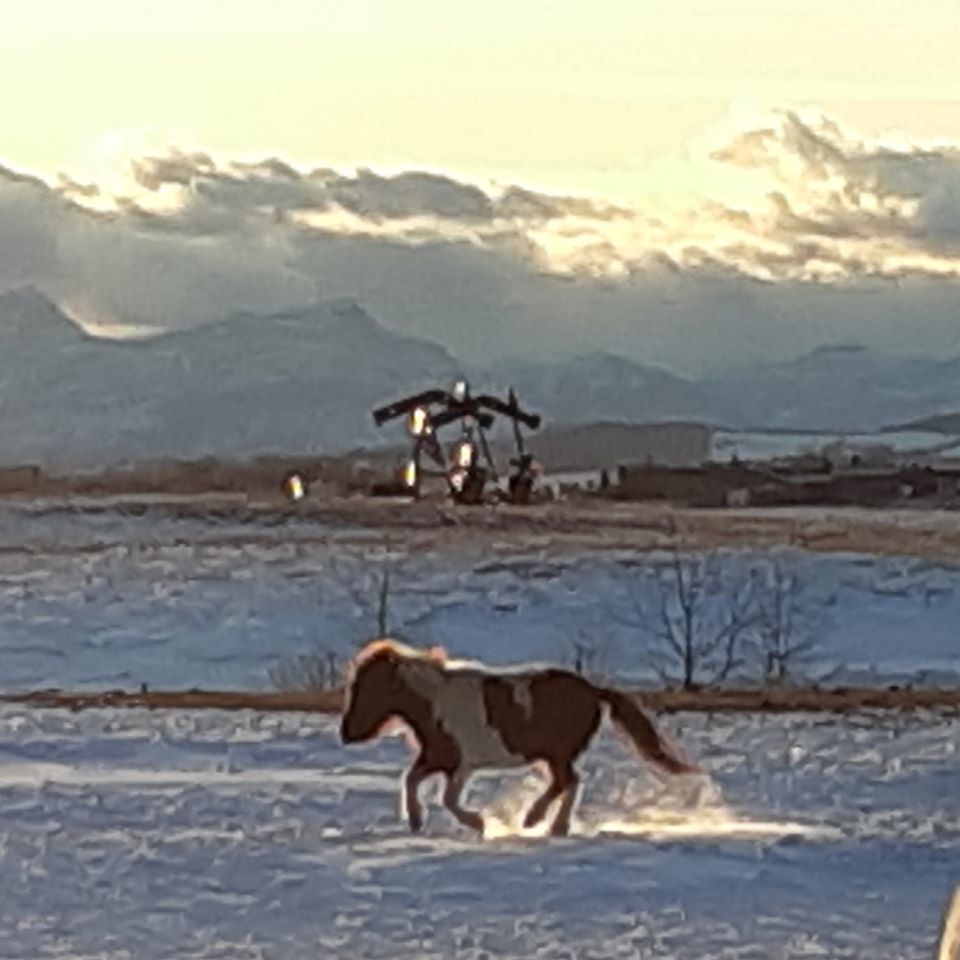“Kendra’s horses know better than to step out of line.”
Someone said this once, meaning it as a compliment, I think, and the group of friends and family around me all chuckled in agreement.
It was the first time that I ever thought, “hey, wait … is that really what I want?”
It made me uncomfortable to hear it phrased that way – that my horses knew they better behave the way I wanted, or else.
I don’t know what exactly changed that made me feel uncomfortable, or what had started the shift, but that’s the first moment that I was aware of it.
I grew up with Miniature Horses – I’m so lucky – and as with most of us who have a lifetime of horses, I understood traditional methods to be The Way It Was. Horses needed to do as they’re told. They needed to “respect” us. Pressure and punishment were the tools that worked.
But that’s the first time I realized that maybe I didn’t like The Way It Was.
The change in my horsemanship didn’t happen all at once. Heck, I’m still learning every day and making adjustments to how I do things! But I feel much better about the path I’m on now.
I remember telling people, “I feed my horses treats, but NEVER as part of their training!”
Now I use treats in my training as a matter of routine, and it’s made training more fun – and easier! – for horses AND for me!
I remember telling people, “Bitless is fine for riding horses, but it’s the only way you have to control a driving horse, so you need a bit.”
Now I know that it isn’t about control at all, but instead, communication, and the tack you use has little bearing on the effectiveness of your communication. I drive bitless, and probably would a lot more if I didn’t have competitive aspirations in organizations that still require a bit.
I used to think I had to be the one in charge, calling all the shots.
Now I know that a rewarding partnership relies on both partners having a voice, and I work hard to make sure my horse knows that I’m doing my best to listen to what they’re trying to say, and that they’re allowed to say NO if they need to. And I’ve learned that the ability to say no means they’re much more likely to give an enthusiastic yes!
It’s been over a decade and a lot of learning since that first moment of doubt, and hopefully, in another 10 years, I’ll look back at what I do now and be equally proud of how far I’ve come.
I’ve always said that my favourite thing about horses is that there is always something else to learn.
That’s one thing that hasn’t changed at all.
That’s why I do what I do – this website, and the courses I offer, are my way of helping others learn the same skills and concepts that taught me how much MORE fun and rewarding time with my horses could be. I want to make a difference in how effectively humans can communicate with their horses. I want them to have joyful and rewarding relationships, and for those relationships to be joyful and rewarding for the horses as well.
Register for the Introduction to Positive Reinforcement online course to get started making a shift in your horsemanship!

I used to think that way too. It takes daily purposefulness not to do it the old way but to make it a partnership.
Thank you for saying how I feel ! For years I’ve watched people work with their horses, big and small, and wondered why they seem to be angry . It’s like it’s either my way or the horse gets hit, yelled at or even brutally abused. This seems to be true of older men more than women. I love all animals and treat them with love and kindness. We can all use more of this. One thing that bothers me a lot is watching mini owners is the show circle. I fact I have stopped participating and even going to watch shows . Why do these people think it is necessary to continue pulling and jerking on the lead ropes? I understand they are trying to get their horses attention but, jerking over and over again only seems abusive and very unnecessary. It makes me look at the person jerking on the horse instead of the stance of the animal. Isn’t there a better way? I’m sure to many these comments seem that I’m over sensitive but, we as horse owners still have a lot to learn! It’s not always about control and ribbons. It’s about enjoying our animals and hoping they like being with us . They shouldn’t have to fear us and should be able to trust and yes, even respect us. Thank you for all you do and say to help us to do right by our beautiful little horses!!
I have a lot of respect for you, for many reasons. So many people refuse to change or even to look at other possibilities. I think change is particularly hard in the horse world and especially the show scene, both anchored in traditional practices. When I got my first miniature horse, I too became uncomfortable with some of the ways I had been with my full size horses in the past. I wanted a better way and opened my mind to clicker training. I knew I had to learn how to use this training/communication tool properly, so I took two clinics by Monty. I have been on the path since then. I love it and my horse loves it. I’ve also learnt so much from your online courses and our virtual consultations. You are making a significant and very positive impact on improving relationships between horses and their handlers. Thank you!